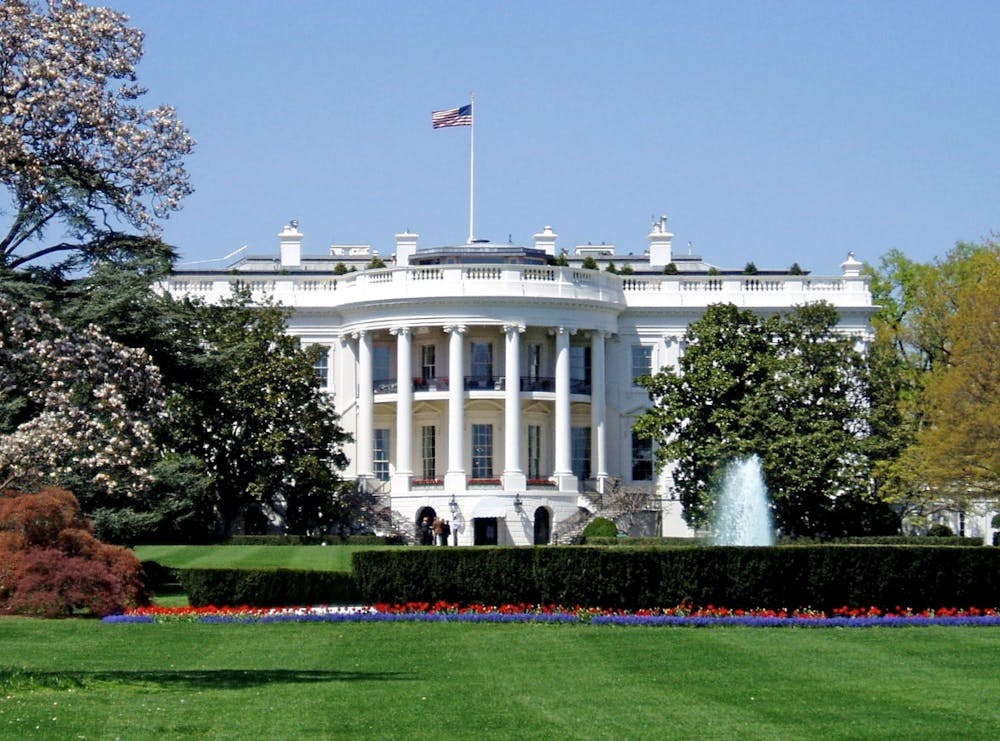Illness can be unexpected, to say the least. It spikes our temperature — compelling us to face newfound pain and unaccustomed fragility. The bodies we travel in are suddenly forced to stop in their tracks, making us question if we were going too fast, too hastily, or if we were simply in the wrong place at the wrong time.
Then, we enter a noisy storm of sterile needles and white coats — pushed into a space of uncertainty as we grapple with a burgeoning fear. As we’ve seen in recent months, illness can ruthlessly kill. Illness can cause unimaginable loss. Yet, illness has also united people under a mutual understanding of what it means to experience pain.
Though over 200,000 Americans have died from COVID-19, I couldn’t help but feel proud of the way our nation responded after President Trump’s COVID-19 diagnosis was announced in early October. Illness and concern for others’ health united us — all of us.
Heavily divided in the weeks before an anticipated election, Americans were able to achieve a temporary common ground and union, with Democrats and Republicans wishing for the President to have a healthy and safe recovery.
Yet, with all of the well wishes President Trump received, he was quick to deny any perception of weakness, as evidenced by his seemingly risky outing from his hospital bed to meet supporters against medical advice.
As reported by The New York Times, Trump, who dislikes hospitals, was “hankering to get released” from Walter Reed National Military Medical Center. In fact, some worried that he would pressure doctors into releasing him prematurely, leading to a potential return to the hospital should his condition worsen.
Many of America’s Presidents have suffered from some type of illness. In fact, according to a medical review published in 2018, George Washington “was half deaf and only had a single tooth” when he first took the oath of office in 1789. Thus far, four Presidents have died from poor health while serving in office.
Strikingly, however, anticipating the sickness of Presidents has been a shortcoming of our governmental system. The Founding Fathers reported that the Vice President may become the acting president should the elected one die, resign, or become debilitated. However, what occurs when a president is left unfit to serve for an indefinite period of time, or if they are physically able, but mentally unwell?

There remains considerable ambiguity surrounding presidential health primarily because citizens, much like our nation’s Founding Fathers, don’t expect a leader to fall ill. Consequently, our nation’s leaders feel obligated to live up to such an expectation and conceal physical vulnerabilities and sickness from the public.
Whether they strive to exude such a sense of physical superiority or are reluctant to relinquish powers to others, several Presidents — from Woodrow Wilson Class of 1879 to FDR — have, like Trump, covered up or denied the severity of their illness. What Trump did, then, is not novel.
In April 1919, President Wilson contracted the Spanish Flu after negotiating the treaty that would end World War I in Paris. The exhausted President experienced fevers of 103 degrees for four days, as well as a mild stroke which later debilitated him. In an effort to conceal the President’s condition, the First Lady and his physicians insisted on maintaining secrecy and not disclosing any information to the public.
While Wilson’s case may be extreme, other Presidents have likewise concealed their health conditions from the nation. President Franklin D. Roosevelt, a paraplegic polio survivor, ran for a fourth term in 1944 despite being diagnosed with congestive heart failure. At the time, medications had not yet been developed to manage this condition, leaving him with limited options as the election neared.

Roosevelt succumbed to a cerebral hemorrhage just three months after his inauguration, generating widespread fear and shock, as many citizens had not realized the severity of his illness. Roosevelt’s widow, Eleanor, later recalled in her post-White House memoir, “we were all so unwilling to acknowledge [her husband’s] illness as he reached the end of his life.”
Presidents, of course, are not alone in masking vulnerabilities in an attempt to portray strength. The belief that it is weak to get sick — to show vulnerability and depend on others — pervades American society. Indeed, as Princeton students, especially during the pandemic, many of us feel pressure to ignore illness of any form in order to perform well academically.
Yet, this mindset often leads to more harm than good, and it has clouded transparency between leaders and citizens for generations. American presidents can set an example for the rest of the country. By being honest and open about their health, they can display how illness is not a weakness, but a mark of resilience.
When our world is undergoing a historic transition, political leaders must set an example by being open with the public — minimizing uncertainty, secrecy, and misinformation — to the best of their abilities.
Aditi Desai is a first-year from Livingston, N.J. She can be reached at aditid@princeton.edu.








